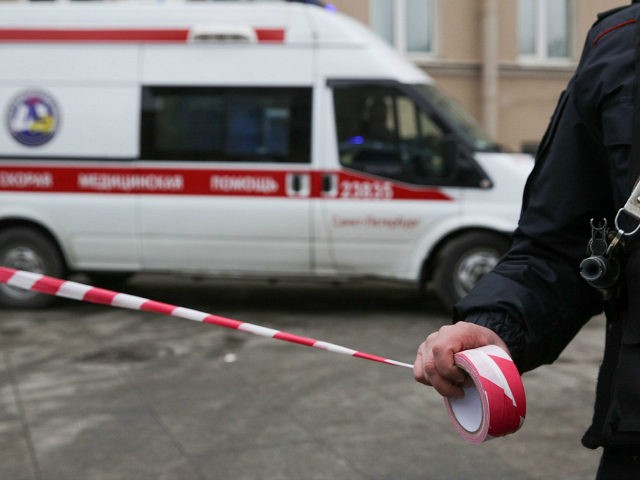Moscow police are investigating the bizarre case of two North Korean migrant workers who were found dead in separate hotel rooms, having suffered “acute heart failure” after the injection of a “mystery drug.”
The UK Daily Mail reports that Russia’s health and security ministries are both investigating the deaths, which occurred last week. The first victim, 37-year-old Chkhe Men Sen, was found dead in his room at the Gorodskoy Hotel in central Moscow by paramedics. The second, 22-year-old Khon Gim Chkol, died while the paramedics worked to resuscitate him.
Early Russian media reports suggested the two might have been suffering from a “fever of unknown origin” that affected several other North Koreans in the area. The hotel rooms in question are set up like bunkers, with half a dozen people sleeping in each room, making disease transmission a real concern. Evidently, these rooms are often employed as low-cost quarters for migrants.
However, the Daily Mail quotes Russian media reports that the two dead men received injections of a mysterious drug before their deaths. Acute heart failure was later reported as the cause of death.
Although there was immediate speculation about the assassination of North Korean dictator Kim Jong-un’s brother Kim Jong-nam in Malaysia with a chemical weapon, the Daily Mail notes that, according to local media accounts, the two men appear to have been injected voluntarily with the unknown substance.
It is hard to see why even the sinister North Korean government would use lethal injections to murder a pair of migrant workers, although the Daily Mail ominously reports that North Korean officials have “removed” a number of other North Korean citizens from the hotel. Other theories posit that the unknown drug was supposed to be an inoculation against the disease affecting workers at the hotel, a performance-enhancing drug, or a recreational substance.
Newsweek notes that Russia is the largest employer of North Korean labor, with up to 30,000 North Koreans living and working in Moscow, St. Petersburg, and the eastern parts of Russia at any given time.
“North Korean labor is prized because workers are diligent, efficient, discipline, and most importantly for businesses cheap. However, the practice has been condemned by human rights organizations who describe their labor as ‘human slavery,’” Newsweek observes.
“It’s not unusual for people to volunteer their services. They’re used to terrible working conditions in their own country, they may as well go and work abroad in the same conditions,” James Hoare of the Center of Korean Studies at Soas said of these migrant workers.
The UK Guardian paints a dismal picture of life for North Korean laborers in Russia. Those who have contact with them describe the workers as “downtrodden” and fearful, comparing them to prisoners of war and slaves.
Some human rights activists bluntly accuse employers of North Korean migrant labor of participating in a modern-day slavery operation. One North Korean who escaped from a Russian logging camp in 2002 described concentration-camp living conditions, with rampant disease and starvation-level provisions.
Cheap and compliant labor from veritable indentured servants also helps Russian contractors skim off fantastic amounts of money from construction projects, producing a combination of cost overruns and substandard work.
Another hideous facet of the system is that Russia and North Korea inked an “extradition treaty” last year that U.N. officials denounced as a system for shipping would-be defectors back to Pyongyang for torture and execution. Plenty of “captains” are mixed into the workforce to provide “discipline” to the laborers.
The Guardian article mentions a 47-year-old laborer who died of a heart attack on the job site due to extreme fatigue last year. Another died after falling from the top of a building in June. In 2013, five North Korean workers on a construction site in eastern Russia were killed by fumes from a diesel-powered generator.
Deaths among these workers are not unheard of as they work grueling hours in difficult and often unsafe conditions. The meager pay they receive is docked by the regime in Pyongyang to provide cash for its military and nuclear programs.
While some Russian contractors who spoke to the Guardian denied the more lurid claims of slave labor and abuse, several publications have been able to get North Korean workers to confirm long hours and labor contracts lasting for years, usually with handlers rushing forward to put a swift end to the interviews.

COMMENTS
Please let us know if you're having issues with commenting.